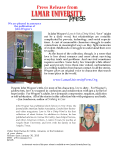All Beat to Hell
January 27, 2015 Leave a comment
Over the next 2 weeks or so, I’m going to begin the marketing campaign (a polite way to shamelessly plug my new book) for Love is Not a Dirty Word and Other Stories. You can click on the press release to the left to learn more, and Friday the book should be available on Amazon, etc for purchase. (That’s pretty exciting to write, by the way.)
Despite the fact that I am so tired of reading these stories I may not even keep a copy of the book in my house, I’m going to post the first couple of paragraphs of each story in the coming days.
Before we get to those introductions, though, I’m going to do the coffee house thing and intro each story. Forgive my pretentiousness.
Originally, I was going to title the collection “Trailer Park Stories,” and “All Beat to Hell” is one of the stories set in such a place. Set in a trailer park (in what I imagine in my head to be someplace near Houston,) the story starts when our narrator sees a face from the past on the front page of the newspaper.
As anyone who writes knows, fiction is not biography but we know that fiction has deep roots in real moments. Mary Gauthier, a great song writer and troubadour, once said in an interview that all her songs start with her but she hopes they never finish with her.
Yeah. What she said.
I suspect that throughout these stories, family and friends might recognize scenes but I hope they don’t want to argue “it didn’t happen that way!” Of course not. One of the joys of fiction writing is taking that moment you might have experienced and shaping it to fit a new world with scenes you can imagine.
The story below, “All Beat to Hell,” started with a memory that probably isn’t even a real memory. At some point in my childhood, we are living in a trailer park on the gulf coast and a girl is sitting on the trunk of a car. She has long hair and she’s sassing every kid around. That’s where the memory ends. I have no idea why I remember that moment. Nothing happened. I have no idea who that person is or what happened to her.
As often happens, though, I was in HEB years back and the check out girl had this long black hair and a wry little smile. She wasn’t particularly good looking but there was something about the way she talked and rang up the groceries that made her seem unique, a little out of place in the 15 items or less aisle.
Her name was Lydia. I remember leaving the store that day and rolling her name around on my tongue, wondering how Lydia wound up ringing groceries at the HEB. While I’m sure some neuroscientist could parse out how Lydia reached back into the recesses of that memory and became the girl on the trunk, but I won’t pretend to do so.
But my memory of the girl on the trunk now has an ending.
The story, though, isn’t really about Lydia, but it is about remembering Lydia. Our narrator sees an old friend dead on the front page of the paper and the past intrudes on his morning routine, taking him back to a place he likes to ignore even as he realizes you can’t ever really forget the past.
The text below is from the fourth galley proofs. I think I caught all the formatting errors from the copy and paste. The book becomes available later this week on Amazon, etc. I hope you enjoy it, but if not there’s no reason to let me know.
“All Beat to Hell”
“I was living in some graduate student dorms in Denton, about two semesters away from a PhD in Chemical Engineering, when I saw Davey Williams’ picture on the front page of the Dallas Morning News. It was the kind of story I normally skip—“Cop Killer Gunned Down”—but the image caught my eye. Face down in a pool of blood, a half smile rose from the maroon puddle like a demented drama mask. His right leg was bent toward his chest almost in mid-stride, and his left arm extended to a gun just out of reach. The periphery of the photo showed police and paramedics
rushing inside the convenience store, but the dead body held center stage. His eye was half opened as if the camera’s flash blinded him for a moment, but I kept looking at the mouth and I could hear his voice from a summer I tried not to think about often.
It’s 1985 in the Heritage Oaks Mobile Home Park and the Saturday after school let out for the summer. Colton, Davey, and I had spent most of the morning standing around telling jokes and talking shit—trying to sound tough and more hardened than we felt. We were sixteen at the time, but Colton’s birthday was the next week and his dad was taking him to look at a truck that afternoon. Nothing new or fancy, but an engine with four wheels attached was better than what any of us had at the time. Back then, or at least in the neighborhood where we grew up, everyone had more drivers than cars. Colton and I both had a license, but we shared vehicles with our families and parents got first dibs. I didn’t get a car to myself until I was a senior, and even then I had to pay for half of it.”
If you want to read the rest of the story and find out all about Lydia, you have to pony up the $15.

